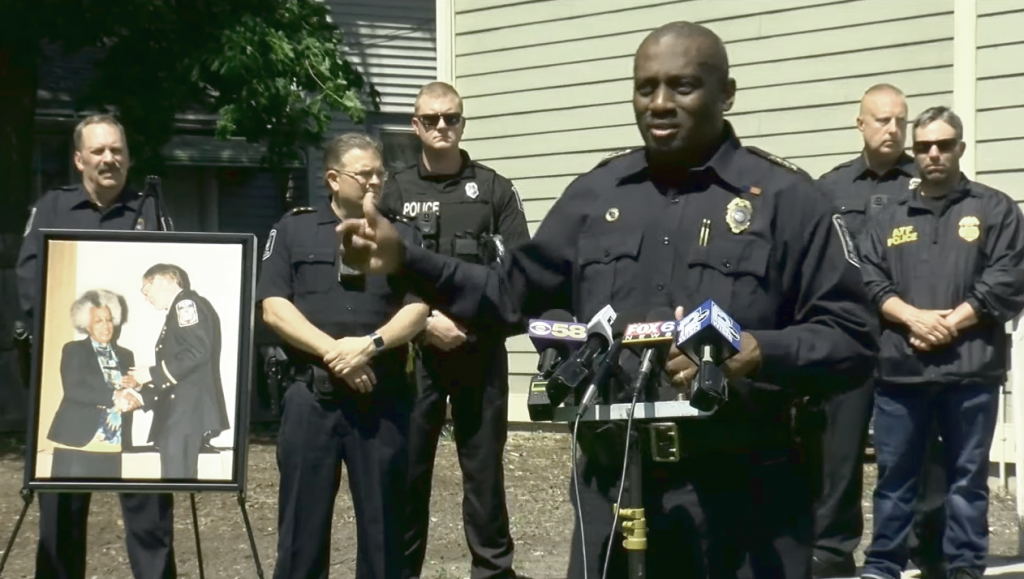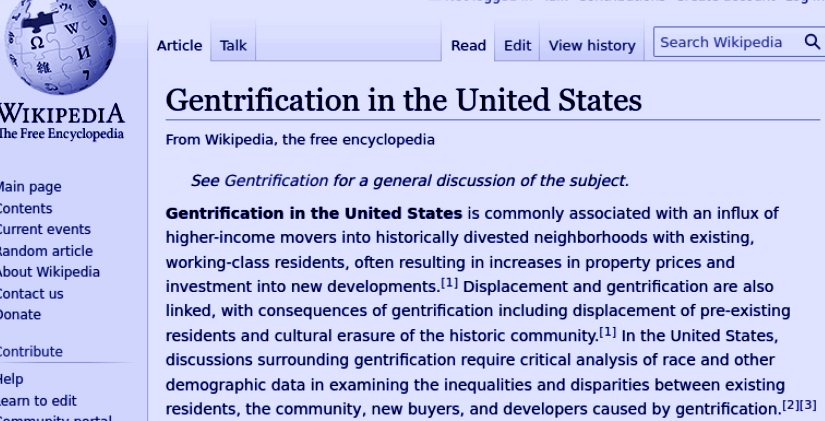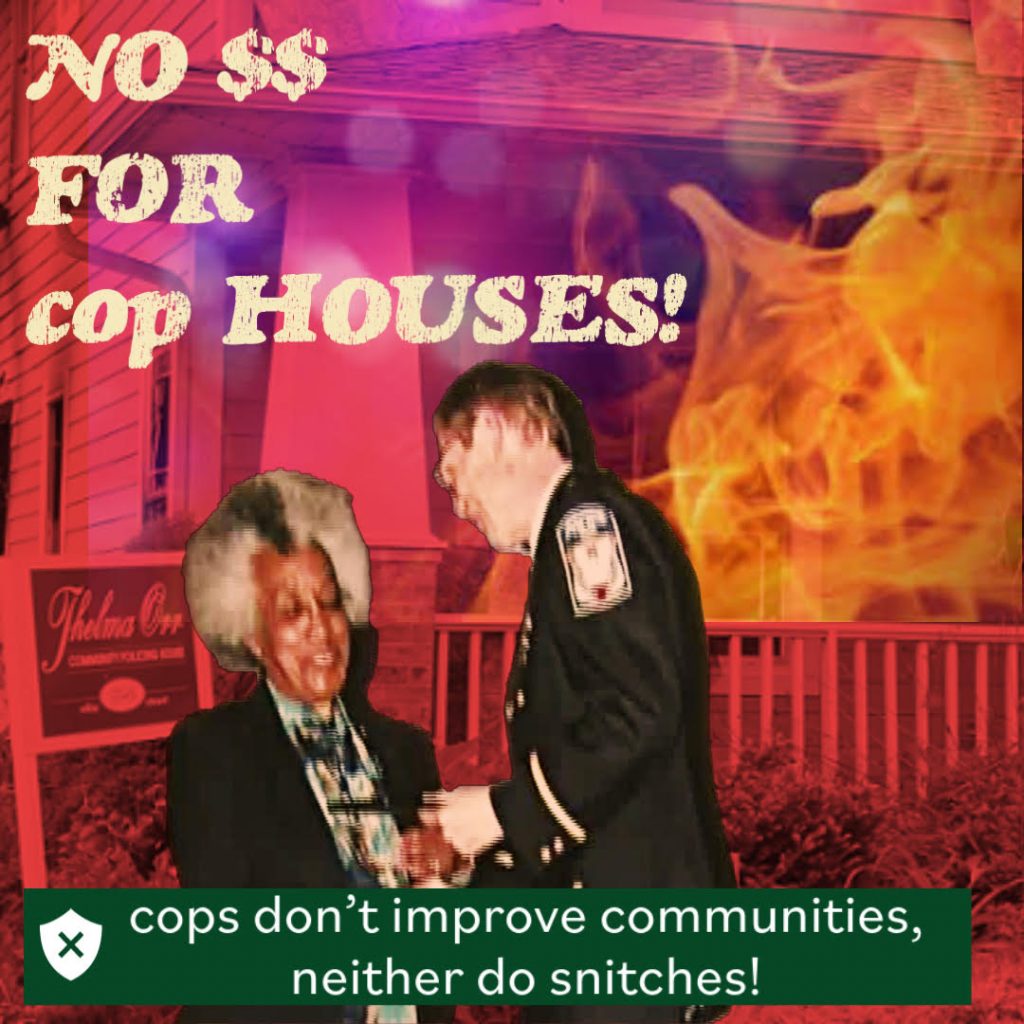“Assembly Bill 258 is ramming its way through with the support of Representatives Spiros, Armstrong, Brantjen, and Ortiz-Velez. This bill sucks cuz it gives the cops more of the money than they already have to do stupid shit that also sucks. So if these are your representatives you should call them and tell them this bill sucks, and that they suck and that they owe you money for wasting your own time with this phone call.
That’s the article, see you next time!”
Well that was the article I had written, but we sent it to our editors at the Abolitionist Archives HQ and they sent it back to tell us we should include more information and a better detailed plan of action. So let’s see what we can do with that bit of feedback!

Assembly Bill 258 is the Assembly version of the Senate Bill 124 (Which we talk about here) The one about COP, or Community Oriented Policing, houses. From what we can tell from a few minutes of Googling it seems like this idea exists in its current form based on a program the City of Racine started in the 90’s. The first house was named after Thelma Orr, a lady who made it her business to turn neighborhood kids against each other by recruiting them to join the fuzz.
The COP house idea is that police departments get funding to buy up old houses in “bad” (poor) neighborhoods and turn them into mini police departments where the cops spend time with the community to build trust. Proponents of this type of community based policing will cite the COP house program in Racine and how it turned the – in the words of one police officer – “Murder capitol of Wisconsin” into a far safer and lower crime area.
It sounds great! If… you don’t look at the words closely. First it would be valuable to look at this claim about Racine being the “murder capitol of Wisconsin.” This has never been true, and is a typical myopic and narrative-driving lie that both the cops and politicians love to use. In fairness to that cop, homicide rates in Racine have fallen, but this is consistent with homicide rates over the entire state and country as well. To say these COP houses are the solution is a stretch.
Let’s look at some of those other words that COP house-likers use! Next up: “community.” Community is a wonderful sitcom about 7 wacky friends who attend a Community College for 6 seasons together. It ran inconsistently from 2009-2015 and is not what we are talking about here. The word ”community” in THIS context seems to mean the rich and powerful, or the regular rich, or in certain cases the middle class and powerful. For example, there are middle and even lower-class community non-profits who stand to gain power from good relationships with police. At any rate, the community that police want to know and be a part of, will never include homeless people, students, poor people, or criminalized people.
Not for nothing, but it really seems like “building community” means “building a community of police-trusters” and “lowering crime” really means “raising property values.” Maybe a big piece of these COP houses exist to push poor people out of neighborhoods, and make room for rich people to move in, so that landlords and businesses can make more money. I just wish that there was a word for this.

Thelma Orr’s Limited Community
This limiting definition of community was put on clear display during the March 18 public hearing. A Racine activist I could only identify as ReBecca testified against the senate version of AB 258. Her full remarks are here. ReBecca described how last summer, Racine locals spoke out against the concept of COP houses by attempting to burn one to the ground! Senator Van Wangaard, a former cop, dismissed ReBecca’s excellent testimony by asserting that, “the individuals that torched that house were not from the community.”
The Racine police chief made the same argument back on June 1, the morning after the COP house burned. The chief’s name is Art Howell, and he’s one of those neighborhood kids who got recruited by Themla Orr to join the largest gang in amerika. While shedding some sweet sweet police tears, Howell said, “I will tell you that anyone that is from this community would not do that to the Thelma Orr COP house.”
On June 4, Howell had a couple people who live in nearby Mount Pleasant and Kenosha arrested. Media reports emphasized that they were “not from Racine.” Then, June 11, Howell had a few more people arrested in connection with the fire, this time they were Racine residents. There’s also livestream videos showing dozens of people marching near the house when it lit up. The crowd cheered. The community cheered.

The Journal Sentinel didn’t talk to anyone who wasn’t already a fan of Thema Orr and the COP house in the first place. Such people also must not be “part of the community.” Same for the dozens of Racine residents who cheered the flames at this mini-police station that night, I guess. Looks like once we let police entrench themselves into our communities, they begin telling us who no longer counts as a member of the community.
So then, what is AB 258? It is a bill for eliminating people. It reduces “community” to mean police, police-likers, the Milwaukee Journal Sentinel, and of course, those neighborhood developers who stand to profit. Hasn’t amerika had enough elimination, already?
The second word that really should get a second look is “trust.” What good comes from trusting the police? Well again, not to be reductive here, but there isn’t any. It is not a good thing to trust the police. Is it wise to trust Van Wanggaard or Art Howell about what happened to the Thelma Orr house? They lied.
Cops lie. They hope to use closer relationships with communities to gain information about locals, and to use that information to inflict violence on the people who live there. When you trust cops you buy into the false idea that cops protect and serve communities and that is the biggest lie. Honestly, we don’t have anything new or special to say about this. Activists in Minnesota put together an incredible piece on community policing and it’s great. Everyone should go read that here.
COP houses are a bad idea, cops are a worse one, and if they were just going to use their own already astronomical budget to “invest” in the “community” in this way, it would be a problem. Unfortunately, AB258 seeks a step further. It will allocate $600,000 worth of grants to expand police funding. Every city with at least 60,000 residents, of which there are 11 in the state of Wisconsin, would be eligible for these COP house bucks. Putting aside that ridiculous threshold of 60,000 people (West Allis is the smallest city to get this grant at 60,025 and Milwaukee the biggest at 594,548) and always remembering that money is fake, this bill would add thousands to police funding for departments around the state. Communities are struggling to fund things they actually need (healthcare, housing, or just IDK just give us money instead??). ZERO dollars should go to police departments.
What’s the plan of attack then?
Well so far the bill is not supported by Democrats at large. State Senator Lena Taylor is the cosponsor, and so far state representative Sylvia Ortiz-Velez is also on board. We should be yelling at them to withdraw support, and at every other law-maker to oppose it. If this bill remains wildly unpopular with Democrats, Tony Evers will be less likely to sign it as a compromise with legislative Republicans. The more that our representatives hear us clamor for less money for cops, the less likely they are to forget that those are our demands.
You can call State Senator Lena Taylor here – 608-266-5810 and 414-342-7176 or email lena.taylor@legis.wisconsin.gov
You can Representative Sylvia Ortiz-Velez here – (414) 278-4269 or email Rep.Ortiz-Velez@legis.wisconsin.gov
You can also look up your Senator and State Rep here and contact them too!
Tell these politicians that we don’t need grants for building trust with cops. Tell them we don’t trust cops, and that we have no reason to. Tell them cops have too much money as it is. If they want to help, cops can give away some of that lots of money they already have. It’s our money after all.
And also, they can quit their jobs!
